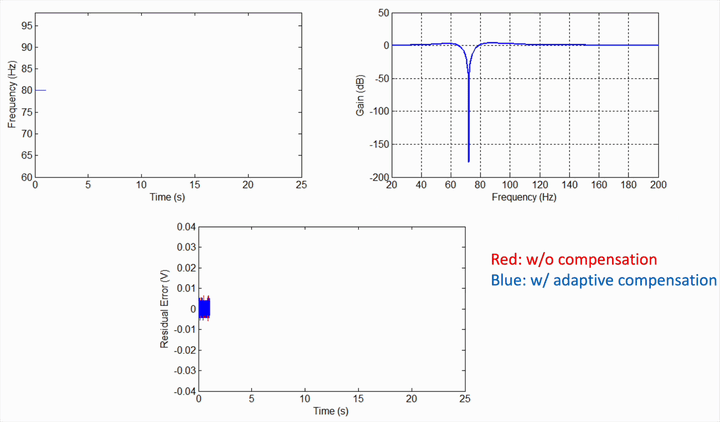Adaptation over Unsteady Dynamics

A signature capability of humans and intelligent systems, adaptation has been a frequent subject of scientific inquiry and a central pillar in feedback controls. We developed a class of stability-assured adaptive controls that achieve highly robust feedback performance under unknown and/or extremely time-varying disturbances.

We have open sourced the algorithms at the MACS ARB Github Repository.
Algorithmically, MACS ARB presents an adaptive control scheme for identifying and rejecting unknown and/or time-varying narrow-band vibrations. We discuss an idea of safely and adaptively inverting a (possibly non-minimum phase) plant dynamics at selected frequency regions, so that structured disturbances (especially vibrations) can be estimated and canceled from the control perspective. By taking advantage of the disturbance model in the design of special infinite-impulse-response (IIR) filters, we can reduce the adaptation to identify the minimum amount of parameters, achieve accurate parameter estimation under noisy environments, and flexibly reject the narrow-band disturbances with clear tuning intuitions.
See details in:
- Chen, X.; and Tomizuka, M. Selective Model Inversion and Adaptive Disturbance Observer for Time-varying Vibration Rejection on an Active-suspension Benchmark. European Journal of Control, 19(4): 300 - 312. 2013., and
- Chen, X.; and Tomizuka, M. Overview and new results in disturbance observer based adaptive vibration rejection with application to advanced manufacturing, International Journal of Adaptive Control and Signal Processing, 29:1459-1474 2015.